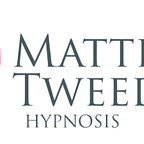How to detect binge eating disorder? 6 warning signs
Childhood is not only the time when we learn most quickly about how the world works; Furthermore, it is in this first phase of life that our self-concept is configured for the first time, that is, the entire set of knowledge and beliefs about the “I” and all that it implies: who we are, what we like, what we are about capable, etc.
However, this is not a purely objective knowledge extraction process. Along with those ideas that we are internalizing about what we are as individuals, we also associate a whole series of emotions and feelings to all facets of our “I”; In other words, everything we know or think we know about ourselves has a strong emotional charge that affects us whether we want to or not. And in childhood, it is relatively easy for us to find it difficult to manage those emotions or to build an erroneous and dysfunctional self-concept about our identity.
That is why many of the children who go to psychotherapy have, in one way or another, self-esteem problems. It is a phenomenon that, if not addressed in time, can lead to difficult adulthood; as much of what we do on a day-to-day basis depends on the idea we have about ourselves, if this fails, a good part of our behavior patterns will surely fail. Here we will see a summary of the most common types of self-esteem problems in childhood, as well as some tips on what to do.
What is Binge Eating Disorder?
Binge eating disorder is psychopathology very similar to bulimia in several ways. In both phenomena, there is a propensity to feel the need to binge on food, becoming, in the medium and long term, a problem that severely affects not only mental health but also physical health. Furthermore, in both cases, we speak of a tendency to eat not because of hunger or a physiological or metabolic imbalance that makes it necessary to receive nutrients quickly. In other words, there is a psychological alteration.
The fundamental difference between binge eating disorder and bulimia is that in the latter, purging behaviors (for example, inducing vomiting or exercising) occur as a compulsion after binge eating to try to somehow compensate for the intake of food and consequent calories, whereas in binge eating disorder this does not occur.
On the other hand, binge eating disorder is associated with many other pathologies, such as obesity or major depression.
Symptoms and warning signs to detect this disorder
These are the red flags that help detect cases of binge eating disorder. However, remember that the definitive diagnosis can only be made by mental health professionals and that not all of these events have to occur at the same time and on all occasions.
1. The person binges without being hungry
People with binge eating disorder tend to eat a lot and very fast, not because of hunger, but when they feel bad due to psychological reasons (for example, when a memory makes them feel embarrassed or when they feel stressed by an exam due soon).
2. Eat so much and so fast that the intake causes discomfort
Binge eating disorder goes hand in hand with difficulty determining how much food is enough, and the person is limited to binge eating in which the food is eaten quickly so that they often feel bad about ending up with an overly full stomach.
3. Binges are planned
While bingeing itself often occurs spontaneously and unplanned, people who have developed binge-eating disorder do plan to create an environment in which a lot of food can be accessed quickly.
That means, for example, that they make sure to have a well-stocked fridge and/or pantry at all times, this being a more important concern than it is for the average person.
4. Binge eating occurs on a weekly or daily basis
The degree of intensity or severity that binge eating disorder can reach ranges from mild cases (one to three binges per week) to extreme cases (with more than a dozen binges per week).
5. Altered states of consciousness during bingeing
It is not uncommon for the person to feel groggy at times of bingeing and focus solely on the act of eating and savoring, and that shortly after eating these foods, they do not remember what they have eaten.
6. Feelings of guilt after ingestion
It is common for people with binge eating disorder to feel bad about themselves because they have binged; however, as we have seen, this guilt does not translate into purging behaviors as it does with bulimia.
What can be done about this psychopathology?
Fortunately, binge eating disorder can be treated, and those who develop this psychopathology and go to therapy have a good chance of overcoming it in a matter of a few months.
It is a process in which both medical and nutrition professionals and psychologists must participate; It should not be forgotten that this disorder goes beyond the functioning of the body in a biological sense, and is maintained through learned behavior patterns that can be eliminated or modified through psychotherapy. Thus, intervening both from medicine and from psychology, it intervenes through the double path of changes at the organic level and at the behavioral level and of mental processes, so that the changes for the better are consolidated and maintained over time.
Are you looking for Hypnosis for binge eating?
If you are interested in having support for problems related to mental health and emotional well-being, please contact Adelaide hypnotherapist. At Matthew Tweedie Hypnosis, we have more than 10 years of experience in the field of hypnotherapy and we serve both people of all ages individually and in couples therapy and family therapy sessions. Now we providing hypnotherapy and NLP training and Coaching Certification. You can contact us at any time for any Query.
